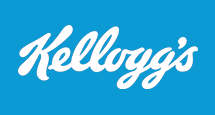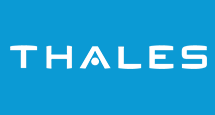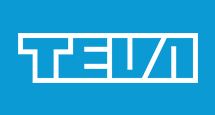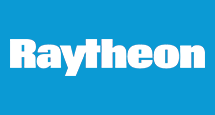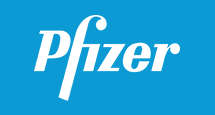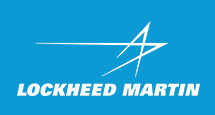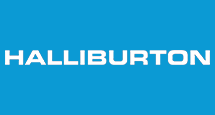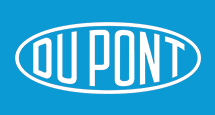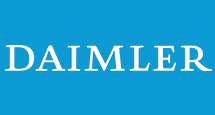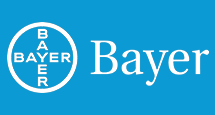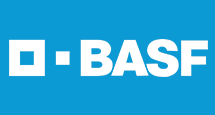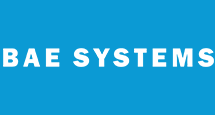Visiongain Publishes Pharmaceutical Contract Manufacturing Market Report 2022-2032
13 April 2022
Visiongain has launched a new report Pharmaceutical Contract Manufacturing Market Report 2022-2032: Forecasts by Services (Pharmaceutical Manufacturing Services (Pharmaceutical API Manufacturing Services, Pharmaceutical FDF Manufacturing Services), Drug Development Services, Biologics Contract Manufacturing Services (Biologics API Manufacturing Services, Biologics FDF Manufacturing Services), by End-user (Big Pharmaceutical Companies, Small & Medium-Sized Pharmaceutical Companies, Generic Pharmaceutical Companies, Other) AND Regional and Leading National Market Analysis PLUS Analysis of Leading Companies AND COVID-19 Recovery Scenarios.
Global Pharmaceutical Contract Manufacturing Market Outlook
According to Visiongain analysis, the global pharmaceutical contract manufacturing market was valued at $115.8 billion in 2021 and is projected to reach $329.7 billion in 2032, registering a CAGR of 10.1% from 2022 to 2032. Europe's Pharmaceutical Contract manufacturing market was the highest contributor to the global market generating $43.9 billion in 2021 and is projected to reach $113.9 billion in 2032, registering a CAGR of 9.1% from 2022 to 2032.
What are the Market Drivers?
Patent Expiry and Increasing Demand for Generic Drugs
Generics are low-cost medications with therapeutic efficacy and safety profiles that are comparable to those of their branded equivalents. One of the primary elements driving the generics market demand is the push to decrease rising healthcare costs. Patent expiry paved the way for a slew of less expensive generic alternatives to enter the market. Patent expiration is a good predictor of market growth since generic manufacturing businesses subcontract roughly 80% of their production to CDMOs. Some of the major drugs whose patents expired in 2021 were Roche’s Lucentis, Galen’s Adasuve, Mylan’s Perforomist, Lundbeck’s Northera, and Emergent BioSolutions’ Narcan.
Currently, several CDMOs are expanding their facilities to tap the growth opportunities in the expanding generics market. In December 2021, SGS had acquired Quay Pharma that helped the company expand its business in the CDMO industry. Additionally, in December 2021, Adare Pharma Solutions acquired Frontida BioPharm that will help the company expand into CDMO offerings such as high potency compound handling and packaging services.
Investments in Pharmaceutical R&D
The global pharmaceutical industry is research-intensive, with innovative firms spending on average about 15% of their sales on R&O. Also, the increasing R&D expenditure on early-stage development, as well as an increase in the number of potential drugs in the preclinical phase, is driving the demand for preclinical services among life science companies.
Some of the top pharmaceutical companies have increased the R&D expenditure that help promote product innovation and drug development. For instance, in 2020, Incyte spent $2.2 billion, Regeneron Pharmaceuticals spent $ 2.7 billion, Biogen spent $3.9 billion, and Bristol Myers Squibb spent $ 11.1 billion as R&D expenditure. According to the Congressional Budget Office, around $ 83 billion was devoted to pharmaceutical R&D expenditure in 2019 in the United States. The growth in the R&D pharmaceutical expenditure is expected to increase the opportunities of outsourcing services provided by CROs, thus boosting the demand of pharmaceutical contract manufacturing market.
Advancements in biotechnology have made it necessary to outsource various drug development stages in order to develop cost-effective and efficient medicines. With compounded timeline savings, investment savings can reach more than US$0.5 Billion post its success in Europe. This compounded timeline savings model’s advantages are now being realized in the US, the world’s largest R&D market. Thus, outsourcing drug development activities improves trial efficiency and productivity and helps drug development companies deliver new medicines faster.
What are the Market Opportunities?
Increasing Demand for Biological Therapies
The introduction of new biologics-based therapies and increased revenues from current biologics are expected to boost biologics, biosimilars, and large-molecule drug shares in the coming years. Over 200 biologics have been authorised by the US FDA in the previous decade. In addition, biologics accounted for 27% of all treatments authorised between 2018 and 2021, while biopharmaceuticals account for 65-75 percent of all drugs now in clinical research. The FDA of the United States authorised 46 new medicines and biologics in 2021.
However, these products (mostly parenteral medications) need a higher focus on dosage form stability as well as novel techniques to overcome biological obstacles to distribution at the target region. Since such formulations are difficult to produce, biologics manufacturing outsourcing has grown in popularity.
Growth in the Nuclear Medicine Sector
The contract manufacturing of nuclear medicines includes the development and manufacturing of radioisotopes and radiopharmaceuticals. Recent corporate acquisitions and share offerings have created renewed interest in the radiopharmaceutical industry. The takeovers of Endocyte and Advanced Accelerator Applications (AAA) by Novartis in 2020, for USD 2.1 billion and USD3.9 billion, respectively, have raised the profile of radiopharmaceutical (products that act as both diagnostic and therapeutic agents) products and radiopharmaceuticals in general. Additionally, in May 2021, Curium completed the acquisition of IASON that helped the company expand its business in European region and expand its product portfolio of life saving diagnostic solutions. The growing emphasis on cancer management has accelerated the growth of this market due to the need for new and effective diagnostic and treatment options for common and rare cancers.
Companies involved in the production of nuclear medicines prefer having all the processes integrated under one roof to foster the effective development of new products. For this, they outsource to CDMOs that have the expertise and manufacturing capabilities, all under one roof, thereby saving time and overall production costs.
Growing Demand for Cell and Gene Therapies
Cell and gene therapies has the ability to meet unmet medical requirements associated with treating a variety of illnesses. Many pharmaceutical firms and investors have put substantial resources into researching and commercialising these medicines because of their strong therapeutic potential. Several companies are strategically expanding in the cell and gene therapy market by acquiring facilities with major expertise. For instance, in April 2019, Catalent acquired Paragon Bioservices Inc. (US), one of the leading cell and gene therapy contract manufacturing companies, for USD 1.2 billion. In March 2019, Thermo Fisher Scientific acquired Brammer Bio (a CMO) for USD 1.7 billion. This enabled Thermo Fisher to accelerate its activities in the cell and gene therapy CDMO marketplace. Major players such as Lonza and Catalent have also entered this market through similar strategic developments.
COVID-19 Impact Analysis on Pharmaceutical Contract Manufacturing Market
The COVID-19 pandemic had a favourable influence on the pharmaceutical contract development and manufacturing business. The outbreak sparked the development of coronavirus-related vaccines, antiviral vaccines, antibody therapies, and a variety of pharmaceutical products, prompting pharmaceutical companies to hire contract development and manufacturing organisations for pharmaceutical drug development and manufacturing in order to ensure their business's long-term viability.
Most pharmaceutical firms, contract research organisations, and research institutions are working together to transfer research into useful pharmaceutical products. For example, Catalent Inc. and AstraZeneca PLC announced a deal in August 2020 to increase manufacturing support for the University of Oxford's adenovirus vector-based COVID-19 vaccine AZD1222 at the Harmans, Maryland production plant. In addition, Thermo Fisher Scientific Inc. (US) teamed with Inovio Pharmaceuticals, Inc. (US) in September 2020 to produce INOVIO's DNA COVID-19 vaccine candidate INO-4800 and improve commercial manufacturing.
Furthermore, several vaccines are still in development, despite the fact that some COVID vaccines are now accessible. According to the World Health Organization (WHO), 149 vaccines were in clinical development, 195 vaccines were in pre-clinical development, and 37 vaccinations have been approved across many countries as of March 18, 2022. As a result of the increased demand for effective treatments to treat COVID-19, worldwide production of chloroquine, vaccines, antibodies, and other pharmaceuticals is likely to rise in the future years, bolstering the CDMOs market.
Regional Analysis
North America, comprising the US and Canada, accounted for over 30% of the pharmaceutical contract manufacturing market in 2021. Factors such as increasing R&D investments, increased competition among drug manufacturers, shrinking profit margins of pharmaceutical companies, and the presence of major pharmaceutical companies such as ThermoFisher Scientific (US), Catalent (US), and AbbVie (US), are driving the growth of the Pharmaceutical Contract manufacturing market in North America.
The rising demand for state-of-the-art procedures and production technologies in the pharmaceutical sector, which have proved very successful in satisfying regulatory criteria, is one of the primary drivers driving the expansion of the contract manufacturing market in North America.
In 2021, the Asia Pacific region is anticipated to witness highest growth rate in the global pharmaceutical contract manufacturing market. The Asia Pacific region is the most dynamic emerging market globally due to its large base of generic drug manufacturers, growing scientific base and capability (due to the establishment of R&O centres), and the establishment of enhanced manufacturing facilities by major players in the past 2-3 years.
Growth in the emerging markets of China and India is mostly driven by low labour and manufacturing costs, which have drawn huge investments by pharma giants. Despite the capital-intensive nature of biologics, significant capacities have been built by CDMOs in Asia. In 2020, Lonza (Switzerland) expanded its capsule manufacturing capacity in eight sites, including Indonesia and India. In 2019, Fujifilm (Japan) planned to invest USD 90 Billion to expand its Bio Contract Development and Manufacturing Organization business.
Competitive Landscape
Some of the companies profiled in the global pharmaceutical contract manufacturing market are AbbVie Inc., Aenova Group, Albany Molecular Research Inc. (AMRI), Almac Group, Boehringer Ingelheim International GmbH, Cambrex Corporation, Catalent, Inc., CordenPharma International, Evonik Industries AG, Famar Health Care Services, Fujifilm Corporation, Lonza Group Ltd., Recipharm AB, Samsung Biologics, Siegfried Holding AG, Thermo Fisher Scientific Inc., Vetter Pharma International GmbH, and WuXiAppTec among other prominent players. To gain a competitive edge, Pharmaceutical Contract Manufacturing companies adopt a variety of strategies. These include product launch, partnerships, investment in R&D, mergers & acquisitions, regional business expansion, and facility expansion among others.
Discover sales predictions for the global pharmaceutical contract manufacturing market and submarkets
Along with revenue prediction for the overall world market, there are 2 segmentations of the pharmaceutical contract manufacturing market, with forecasts for 3 services, and 4 end-users, each forecasted at a global, regional, and country level, along with COVID-19 impact recovery pattern analysis for all segments.
Who are the leading players analysed in the market?
• AbbVie Inc.
• Abnova Corporation
• Boehringer Ingelheim International GmbH
• Catalent, Inc.
• Evonik Industries AG
• Fujifilm Corporation
• ICON PLC
• Lonza Group Ltd.
• Piramal Pharma Solutions
• Recipharm AB
• Samsung Biologics
• Siegfried Holding AG
• Thermo Fisher Scientific Inc.
• Vetter Pharma International GmbH
• WuXiAppTec
Notes for Editors
If you are interested in a more detailed overview of this report, please send an e-mail to contactus@visiongain.com or call +44 (0) 207 336 6100.
About Visiongain
Visiongain is one of the fastest-growing and most innovative independent media companies in Europe. Based in London, UK, Visiongain produces a host of business-to-business reports focusing on the automotive, aviation, chemicals, cyber, defence, energy, food & drink, materials, packaging, pharmaceutical and utilities sectors.
Visiongain publishes reports produced by analysts who are qualified experts in their field. Visiongain has firmly established itself as the first port of call for the business professional who needs independent, high-quality, original material to rely and depend on.
Recent News
Visiongain Publishes Drug Delivery Technologies Market Report 2024-2034
The global Drug Delivery Technologies market is estimated at US$1,729.6 billion in 2024 and is projected to grow at a CAGR of 5.5% during the forecast period 2024-2034.
23 April 2024
Read
Visiongain Publishes Cell Therapy Technologies Market Report 2024-2034
The cell therapy technologies market is estimated at US$7,041.3 million in 2024 and is projected to grow at a CAGR of 10.7% during the forecast period 2024-2034.
18 April 2024
Read
Visiongain Publishes Automation in Biopharma Industry Market Report 2024-2034
The global Automation in Biopharma Industry market is estimated at US$1,954.3 million in 2024 and is projected to grow at a CAGR of 7% during the forecast period 2024-2034.
17 April 2024
Read
Visiongain Publishes Anti-obesity Drugs Market Report 2024-2034
The global Anti-obesity Drugs market is estimated at US$11,540.2 million in 2024 and is expected to register a CAGR of 21.2% from 2024 to 2034.
